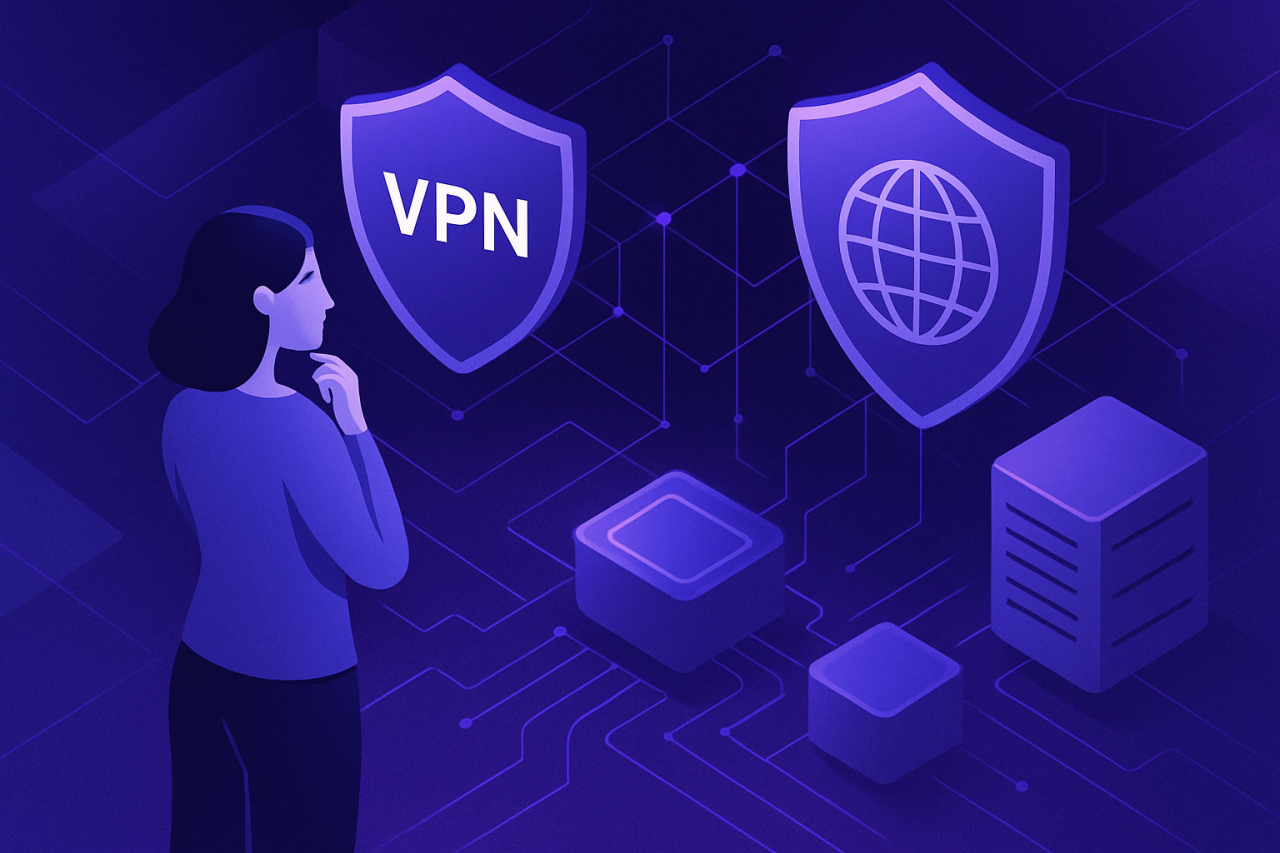“Gdje vuk hoda, tu trava ne raste.”
(Where the wolf walks, the grass doesn’t grow.) In the digital wilderness, the old paths of VPNs are getting trampled down, while nimble proxies skirt around, leaving fewer footprints and more opportunities. Let’s cut through the fog and see why the world is pivoting from VPNs to proxies, with actionable insights straight from the frontlines of network security.
The VPN-Proxies Dilemma: Old Wolves, New Paths
VPNs and Proxies: Technical Comparison
| Feature | VPNs | Proxies |
|---|---|---|
| Network Layer | OSI Layer 3 (Network Layer) | OSI Layer 7 (Application Layer) |
| Encryption | End-to-end encryption (all traffic) | Optional, typically no encryption |
| Setup | Requires client software/system changes | Often browser or app-level config |
| IP Concealment | Full device IP masking | App/browser-specific IP masking |
| Speed | Often slower (encryption overhead) | Generally faster (less overhead) |
| Circumvention of Geo-blocks | Yes | Yes (sometimes more effective) |
| Cost | Usually subscription-based | More flexible, pay-as-you-go options |
| Use Cases | Privacy, secure tunneling, remote work | Web scraping, automation, ad verification |
| Detection by Services | Increasingly blocked/flagged | Harder to detect, more granular |
For an exhaustive technical breakdown, see: https://www.cloudflare.com/learning/ddos/glossary/proxy/ and https://www.cloudflare.com/learning/ddos/glossary/vpn/
Why Proxies Are Gaining Ground
1. Granular Control and Flexibility
VPNs are like the Tito-era Yugo: reliable for everyone going in one direction, but not built for agile maneuvers. Proxies, on the other hand, let you control traffic on a per-application basis. Need your browser to appear in Zurich, but your Slack in Sarajevo? Proxies make it possible.
Example: Configuring a Proxy for Google Chrome
google-chrome --proxy-server="http://ch-proxy.example.com:8080"
This sends only Chrome’s traffic through the proxy, leaving other apps untouched.
2. Web Scraping and Automation
Modern businesses rely on data like Bosnian coffee relies on sugar. VPNs are often blocked or throttled by anti-bot measures. Proxies—especially rotating residential proxies—slip through undetected, mimicking real user traffic.
Python Example: Using a Proxy with Requests
import requests
proxies = {
'http': 'http://user:[email protected]:8000',
'https': 'http://user:[email protected]:8000',
}
response = requests.get('https://example.com', proxies=proxies)
print(response.text)
Further reading: https://requests.readthedocs.io/en/latest/user/advanced/#proxies
3. Bypassing Geo-restrictions More Effectively
Netflix and similar services have become adept at detecting and blocking VPNs—like border guards sniffing out false passports post-Dayton Accords. Proxies, especially residential and mobile, use IPs from real ISPs, making them harder to detect and ban.
Resource:
https://netflixtechblog.com/netflixs-proxy-detection-and-blocking-system-5b0a2e3eac4f
4. Reduced Latency and Higher Speeds
Encryption is resource-intensive. VPNs wrap every packet in a heavy coat, slowing things down—a bit like waiting for burek during rush hour in Baščaršija. Proxies, typically unencrypted, forward traffic faster, especially crucial for streaming or scraping at scale.
5. Evasion of IP Blacklists
VPN IP ranges are well-known and often blacklisted. Proxies, especially those sourcing IPs from vast residential pools, rotate addresses, evading lists like a cunning fox in the Drina woods.
Popular Proxy Providers:
– Bright Data (formerly Luminati)
– Oxylabs
– Smartproxy
When Proxies Beat VPNs: Use Case Table
| Use Case | VPN Suitability | Proxy Suitability | Notes |
|---|---|---|---|
| Secure Remote Work | Excellent | Limited | VPN recommended for full encryption |
| Web Scraping/Data Mining | Poor | Excellent | Proxies less likely to be blocked |
| Streaming/Geo-unblocking | Mixed | Excellent | Proxies bypass blocks, faster speeds |
| Ad Verification | Poor | Excellent | Proxies simulate multiple locations |
| E-commerce Monitoring | Poor | Excellent | Rotating proxies avoid bans |
Step-by-Step: Setting Up a Rotating Proxy
- Choose a Provider: For example, Bright Data.
- Create a Proxy Zone: Configure the geographic region and rotation policy.
- Get Credentials: Obtain username, password, and endpoint.
- Integrate in Application:
“`python
import requests
proxies = {
‘http’: ‘http://user:[email protected]:22225’,
‘https’: ‘http://user:[email protected]:22225’,
}
for i in range(10):
r = requests.get(‘https://ipinfo.io/ip’, proxies=proxies)
print(r.text) # Each request may show a different IP
“`
5. Monitor Usage: Providers offer dashboards for real-time monitoring.
For more details, check the official guides: https://brightdata.com/resources/guides
Security Implications: Not All Sunshine and Ćevapi
- Encryption: Most proxies do not encrypt traffic. Sensitive data (logins, financials) should never go through plain HTTP proxies.
- For sensitive operations, consider SOCKS5 proxies with SSH tunneling or hybrid VPN+proxy setups.
- Privacy: Some proxy providers log traffic. Always choose reputable providers—don’t let your data end up like the missing Tito letters.
- Legal and Compliance: Web scraping, ad verification, and geo-unblocking may breach TOS or local laws. As with the old saying, “Ko se ne čuva, ni Bog ga ne čuva.” (He who does not look after himself, even God can’t protect him.)
Real-World Example: Ad Verification for Balkan Markets
A digital marketing agency in Sarajevo needed to verify ads as seen by users in Croatia, Serbia, and Germany. VPNs resulted in frequent blocks and false positives. Switching to residential proxies, they:
– Rotated IPs based on country.
– Automated ad checks via Python scripts.
– Reduced block rates by 90%, increased campaign reliability.
Case study inspiration: https://www.smartproxy.com/use-cases/ad-verification
Further Learning and References
- Cloudflare: What is a Proxy?
- Cloudflare: What is a VPN?
- Bright Data: Proxy Use Cases
- Mozilla: Proxy Settings
- Requests Library: Proxy Support
- SOCKS5 Proxy with SSH
In the end, as our grandfathers would say, “Pametan uči na tuđim greškama, budala na svojim.” (A wise man learns from others’ mistakes, a fool from his own.) Choose your tools wisely in the ever-changing landscape of network anonymity and security.

Comments (0)
There are no comments here yet, you can be the first!